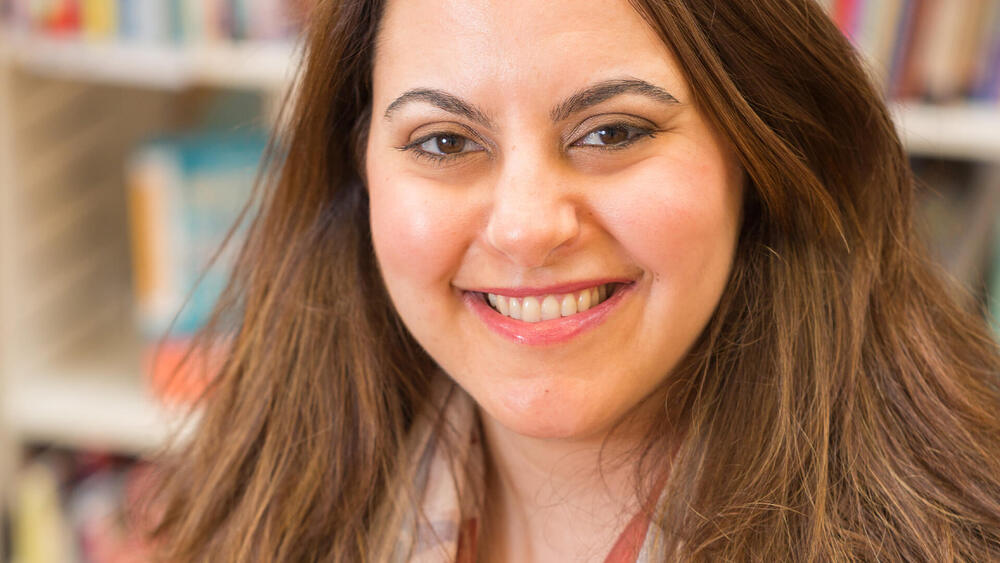You are viewing your 1 free article this month. Login to read more articles.
English for everyone
This year, the OED put its word of the year up for the vote. Here’s why.
By virtue of the people who use it, language is a democratically chosen, evolving and living thing, over which each one of us has influence. But the English language is somewhat unusual among major world languages. This is because it does not have any official regulatory body like an academy to make rulings on emerging changes in the language and declare what is considered legitimate.
In the absence of an academy, dictionaries are often used as the arbiter of what is a "real" word, as many of us who have played a popular word-based board game can no doubt attest. But as a longtime staff member of the Oxford English Dictionary (OED), I can assure you that very few contemporary lexicographers – the people who research and write dictionaries – would claim such authority. Most English language dictionaries see their role as primarily descriptive, not prescriptive: what decides whether a word is included is the evidence that it is being used by people in real communication.
To put it another way, the only thing that determines which words and meanings are available to be used is how we choose to communicate with each other. Each day, the vocabulary of English expands as English speakers around the world cast their votes for new words, meanings and usages, simply by using them.
Considered through this lens, the OED – the principal historical dictionary of the English language – should not be viewed as a text that governs how we communicate but as a testament to the fundamentally democratic nature of language. For example, the dictionary’s entry for the word "cringe" shows how the way people use words influences their meaning. Recorded from the 13th century as a verb and the 16th as a noun, to most people even in the late 20th century it would have sounded wrong to use it any other way. It wasn’t until 2001 that we have a record of it being used colloquially as an adjective meaning "cringeworthy", as in "a totally cringe video", and this didn’t become commonplace until much more recently.
The OED – the principal historical dictionary of the English language – should not be viewed as a text that governs how we communicate but as a testament to the fundamentally democratic nature of language.
As many of us who are familiar with the word can confirm, the adjective is widely used and recognised today, with the embrace of the new usage by English speakers influencing the way we now understand "cringe". When the adjectival part of speech was added to the OED last June, it was to reflect a change that had already happened.
Successful new words are an indicator of what people view as important to communicate: if they find a word or usage valuable, it persists and thrives.
Changing attitudes toward sexuality and gender identity have been a recent driver of new vocabulary in English. More nuanced and fine-grained distinctions in how individuals self-identify have resulted in new terminology. The word "cisgender", which was quite uncommon a decade ago and routinely defined when it appeared in newspapers, is now regularly used and assumed to be understood by readers. Newer words like "enby" (referring to a person with a non-binary gender identity), "ace" (short for asexual), or "aro" (short for aromantic) are not yet as common in mainstream publications, but are in widespread use, especially among younger people. When we see a lot of new words emerging in a particular domain, it can be an indicator of culturally salient change.
Given the shared ownership of the English language, and in a year when the principles of liberal democracy have been seen as under threat, we sought to highlight the importance of language being powered by people.
Therefore, for the first time in its history, we put our Oxford Word of the Year to a public vote. As done in previous years, our lexicographers created a shortlist for the word of the year by monitoring and analysing developments and trends in language. However, unlike previous years, we put the shortlist to a public vote, with everyone having the opportunity to choose which word best represented the year 2022.
In the two weeks in which it was open to the public, more than 340,000 English speakers around the world cast their vote. Of the three words in the shortlist, "goblin mode", which refers to "a type of behaviour which is unapologetically self-indulgent, lazy, slovenly, or greedy, typically in a way that rejects social norms or expectations" won with a landslide 318,956 votes, "metaverse" was the second choice, followed by "#IStandWith".
The incredible response to the public vote serves as reminder that English is a representative, bottom-up language, open to new influences and governed for and by the people who speak it.
Beyond the Oxford Word of the Year and descriptive dictionaries like the OED, this is a reminder that every day, with every word you speak or write, you are subtly influencing what words mean and how they are used. In the reality of language change, there is of course no literal election, but at Oxford we are committed to listening to and reflecting the diverse ways that people around the world use English.
When it comes to the English language, everyone should have the opportunity to vote.



















